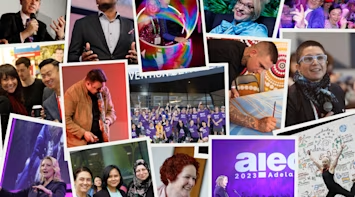Following Canada’s federal election and the appointment of Prime Minister Mark Carney, IDP Canada conducted a global survey to assess how international student perceptions are shifting. With input from over 40 IDP network experts across 20+ countries and qualitative interviews with senior counsellors, this research offers timely insights for institutions and associations in higher education.
Leadership change: International students are in wait-and-see mode
Canada needs clear, positive signals from the government to restore confidence in international education.
Key findings from the survey:
79% say student interest depends on international student policies
Only 8% believe the new government will positively boost interest
87% agree leadership will influence Canada’s appeal
While the election itself hasn’t caused concern, the lack of clarity around student policies has created uncertainty. Institutions must proactively communicate pathways to study permits, work rights, and permanent residency (PR) to restore trust.
What will reignite student interest in Canada?
Permanent residency and rates of study permit approval are key influencing factors for students.
Top factors identified:
51%: Higher chances of gaining PR
51%: Improved likelihood of study permit approval
49%: Clearer post-graduation work opportunities
46%: Easier-to-understand PR pathways
46%: Greater availability of post-graduation work
Often Canada has been seen as a pathway to immigration, not just a study destination. Institutions must reframe their messaging to emphasize academic excellence and career outcomes.
Rebuilding confidence: what students need from institutions and government
Brand Canada needs transparency, clarity and positive messaging to rebuild confidence.
Themes from counsellor feedback:
Transparent and stable visa policies: Students are frustrated by inconsistent decisions and unclear criteria.
Clear career pathways: Institutions must strengthen career services and share graduate success stories.
Sector alignment and social proof: Positive messaging, scholarships, housing support, testimonials, alumni success stories, user-generated content and peer-to-peer engagement are essential.
“It’s frustrating to see students with flawless backgrounds get denied.” — Destination Manager, China
“Institutions should provide transparent data on graduates’ employment outcomes.” — Country Manager, South Korea
Global context: U.S. political climate creates opportunity, but Canada must act
Survey findings:
29%: Increased interest in Canada due to U.S. politics
Only 5% say this has led to meaningful gains
18%: Students are cautious about both countries
Canada has a window to attract students disillusioned by U.S. policies but must offer policy stability, student support, and clear immigration pathways to capitalize on this.
Source market highlights: what’s driving hesitation
Rising costs, misinformation and visa difficulties are driving student hesitation.
Philippines: Immigration cap fears → delayed decisions
Bangladesh: Rising costs + policy uncertainty → lower interest
India: Election anxiety + misinformation → deferrals
Vietnam: SDS removal + DLI issues → credibility concerns
Nepal: Visa processing shifts → confusion and refusals
Canada’s brand is under pressure. Institutions must collaborate with government, associations, and counsellors to rebuild trust and attract qualified students aligned with labour market needs.
Strategic recommendations for institutions and associations
Create greater trust, build long-term value, and provision of student support.
Rebuild trust through policy stability:
Standardize visa documentation globally
Provide clear reasons for refusals
Share real-time policy updates with stakeholders
Compete on long-term value:
Highlight post-study work and PR pathways
Emphasize ROI and career outcomes
Strengthen institutional support:
Offer timely visa support letters
Engage students in-market with info sessions
Use social media and ambassadors to share success stories
Canada’s moment to lead
Canada’s new leadership presents both a challenge and an opportunity. To remain competitive, institutions must align with government efforts to deliver clear, consistent, and student-centered policies. By doing so, Canada can reposition itself as a premier global destination for high-quality education, one that welcomes academically driven students and supports their long-term success.
Want to explore the survey findings in more depth? Download the report, "A Deep Dive into Canada’s International Education Demand," which also includes highlights from IDP's IQ Demand data and our latest Emerging Futures research. These insights were shared at a webinar with the Canadian Bureau for International Education (CBIE) on June 12. Click here, to view the webinar recording.
Download Report: A Deep Dive into Canada’s International Education Demand
DOWNLOADYou might like...

A Look Back on Our Favourite AIEC Memories Over the Years
Ahead of AIEC 2024, we ask sector delegates about their favourite memories from previous years

IDP Wins Prestigious Accolade at The PIEoneer Awards 2024
Guests from around the world attend the glittering ceremony.

International Students Open to New Opportunities Amid Global Policy Changes
Findings from IDP's Voice of the International Student Pulse Survey

